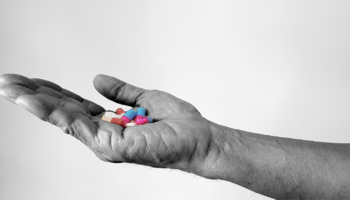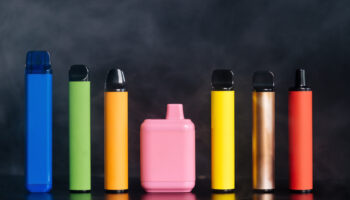Am I Addicted? Symptoms and Treatment Options
The Nystrom & Associates provider consulted for this article on addiction is Dr. Karin Ryan, PsyD, LP, Clinic Director, Outpatient Therapist, R. John Sutherland, PhD, ABPP, LADC, MHA, and Vice President of Addiction Services, and Elizabeth JR Prigge, LADC and Treatment Director of Non-Residential Addiction Services.
Sometimes, addiction or substance use can creep up on you. You might not even realize how much something controls your life. However, 48.7 million people, aged 12 and older have a substance use disorder, so you are not alone. If you're worried you might be struggling, there's help available.
Related: What is a Substance Use Disorder?
Signs of an Addiction
Sometimes it’s hard to recognize signs of an addiction or substance use disorder. Here are some signs that you may be struggling:
- You are using more than is healthy for you
- You want to cut back but can’t stop
- You have a strong urge to use a substance
- You are receiving comments from your loved ones about your substance use
- Your substance use is impacting your work
- You spend more time thinking about needing to use
- You need to use in the morning to function
- You use more to get the same effects
Dr. Karin Ryan suggests, “even if you have one or two of those [signs], it can be really helpful to kind of just look into that.”
Related: 5 Ways to Prevent Substance Abuse
I Think I Have an Addiction, Now What?
If you determined that you have an addiction and want further support, the next step is to go to a substance use disorder program. Nystrom & Associates offers several substance use programs, and it all starts with a substance use disorder (SUD) assessment. You will meet with a licensed alcohol and drug counselor (LADC) for about an hour. Although it is called an assessment, it will be a casual conversation with the LADC. They will get to know you, see how you’re doing, and determine your patterns of substance use to make appropriate recommendations for you.
”Feeling like you should be able to do it alone is really unfair”
Dr. Karin Ryan
Related: PTSD & Substance Abuse: Is There a Connection?
I Want More Help and Support
Once you met with the LADC, they will provide you with their suggestions for care. The great thing about Nystrom is that they have many treatment care options for addiction. Some of the options for care are:
- Residential Treatment : This is typically a 28-30 day program, however some can range as long as 90 days. Residential treatment will provide about 30 hours a week of programming focused on stabilizing your current severity. You will live there for the duration of your treatment, but you will have consistent access to therapists, psychiatrists, and a care team.
- Intensive Outpatient : This group meets three times a week, for about four hours at a time.
- Outpatient Group : This group meets typically once a week, for about four hours at a time.
Related: How to Start Therapy: A Step-by-Step Guide
What is the Timeline?
Everyone’s journey is different, but if you want help, a lot of programs will get you started within a week.
A Word From Nystrom & Associates
Addiction can be scary, but it doesn’t mean you have to battle it on your own! Nystrom & Associates is here to help you find the best options for care. Talk with us at 1-844-NYSTROM or request an appointment online at any of our convenient locations.





